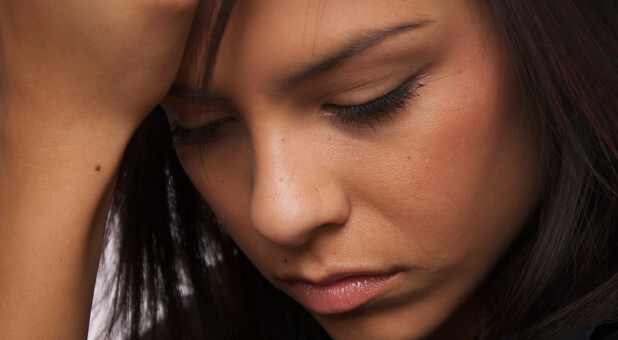I walked into my new third grade classroom that cold November day, nervous and vulnerable. I did not know a soul. The teacher was kind. She brought me to the front of the class and proudly announced, “Class, this is our new student, Casey.” Even though I was apprehensive, I did my best to smile. It didn’t last long. Out of that nervous silence came a voice I would never forget. It was a voice that would linger in my soul for decades.
“Ohhh. She’s so fat.”
Time seemed to stand still. I felt warm. Then, hot. I wanted to run. Tears were fighting their way out. My hands were sweaty. I tried to make my body invisible, but there was nowhere to hide. The teacher mumbled some words to the class, and I was quickly ushered to a desk.
The incident was over in a matter of a few minutes. It felt like an eternity to me. It was a moment that would leave its mark on me in ways I could not imagine. That was my first experience with shame. Unfortunately, it would not be my last.
My mother was a single mom. In order to provide for her three young children, it was decided that she would combine households with her parents, my grandparents. The 1960s in Dallas, Texas where we grew up were pretty rough.
After some time, my grandparents relocated my two siblings and me to their small hometown, five hours away. My grandmother, Nana, was our primary caregiver. She was the one who dressed us, took care of us, fixed our hair, got us to school, attended our plays, and came to our events.
Nana was also overweight, at least 150 pounds. And she was old. In the mind of an 8-year-old she might as well have been 150 years old. Certainly, she was the oldest “parent” of anyone else in the class. I remember one particular event at school. I purposely walked as fast as I could so as not to be seen with her. There it was again. Even though I still did not have the vocabulary or understanding of what I was experiencing, the feeling was all too familiar. I was ashamed.
Shame is a powerful thing.
We give it, and we take it.
Everybody has it, and everybody avoids it.
It is the common denominator of the human race since the beginning of time. Just ask Adam and Eve. In Genesis, specifically 2:25, we find the man, Adam and his wife, Eve were both naked and they felt no shame. Just think about that for a moment! To be naked AND feel no shame! What liberation! Wow. Then just a few verses later everything changed.
“Then the eyes of both of them were opened, and they realized they were naked; so they sewed fig leaves together and made coverings for themselves. Then the man and his wife heard the sound of the Lord God as he was walking in the garden in the cool of the day, and they hid from the Lord God among the trees of the garden. But the Lord God called to the man, “Where are you?” He answered, “I heard you in the garden, and I was afraid because I was naked; so I hid” (Gen. 3:7-10, NIV).
A shame researcher, Brené Brown defines shame as “an intensely painful feeling or experience of believing we are flawed and therefore unworthy of acceptance and belonging. Shame creates feelings of fear, blame and disconnection.”
Is she right? Adam and Eve did three things in the aftermath of their actions.
- They covered themselves.
- They were afraid
- They hid.
All of this was followed by a healthy dose of blame and now we’ve got a foundation on which entire cultures, societies and religions have been built. And billions of dollars spent on legal and illegal drugs to numb the pain.
Shame asks the question, “Is there something about me that if everyone knew, I would no longer be worthy of belonging to this culture, this group, this church, this family? (Fill in the blank here.)
Shame creates the ultimate fear of disconnection. It is the ultimate fear of not belonging to the ____________ that causes us to make the decisions we do. Personalities are formed as we develop attributes meant on covering and hiding the truth about ourselves. Oftentimes, we choose our friends, our profession, our church, and even our mates through the covering of shame. We are wired for belonging. We are wired for connection. Shame perverts and prevents us from becoming who we are and who we long to be. We hide. We cover. We remain afraid to be real and for anyone to see who we really are.
So what is the remedy? How do we begin to peel the leaves off and expose our real heart and soul to one another again?
Courage.
Courage to see who you have been.
Courage to see who you are right now and courage to really become who God says you are. We stop pretending we don’t hear what He is saying. We stop pretending we don’t see what He is showing. Face it. Own our story. Embrace the truth in ourselves, in our circumstances, and in our relationships so that shame has nowhere to hide.
The bottom line is God says you are worthy of the relationship with Him. We must not let shame rule our lives and keep us separated anymore.
In part two of the series, “Shame on You!” Ms. Lohman takes a look at shame vs. guilt. Is there a difference?
Casey Lohman has been active in ministry for over 20 years. She has helped build a school, prayer ministry and healing house. She is a speaker and aspiring writer.











































